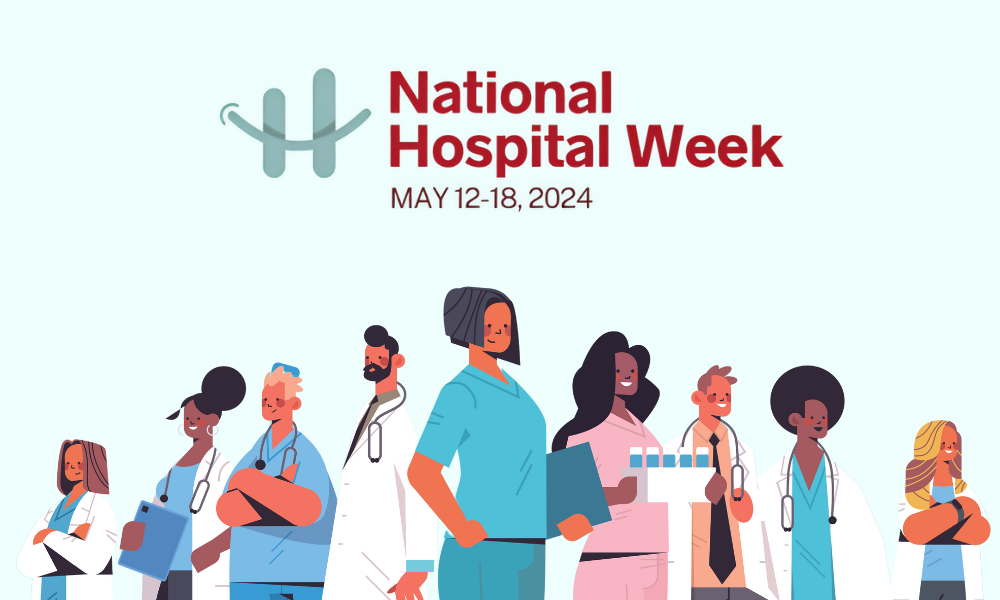“Physician burnout” has been one of the most-talked-about subjects across healthcare over the past couple of years–possibly because it has helped encourage an exodus from a US healthcare system already rife with physician, and other healthcare provider, shortages.
In October 2022, Becker’s Hospital Review reported that, “An estimated 333,942 healthcare providers dropped out of the workforce in 2021,” citing an Oct. 20 report from Definitive Healthcare.”1
Definitive Healthcare characterized the situation like this:
“ ‘Some people just don’t know when to quit.’”
“It might be time to retire this old cliché. As it turns out, people DO know when to quit, and they’re quitting their jobs by the millions.”
“ ‘The Great Resignation,’2 a term coined in May 2021, is an economic trend in which millions of workers are quitting their jobs, switching industries, moving into nontraditional roles, retiring early, and reinventing their ideal careers.”
“The numbers are staggering.”
“According to the US Bureau of Labor Statistics, more than 47 million Americans left their jobs in 2021. The trend doesn’t seem to be slowing down either, as a McKinsey report published in July 2022 found that 40% of employees are considering leaving their jobs.”
In other words, physicians (and other healthcare workers) aren’t alone.However, because they are among the most highly educated and trained professionals worldwide–and because their skills and expertise, or lack thereof, can affect the trajectory of people’s lives–physicians generally undergo greater scrutiny than most of the population they serve.
The healthcare workplace must be fairly stressful and unfulfilling for so many professionals who sacrificed roughly a decade of their ‘prime years’ to practice medicine to turn their backs on their career commitment. It’s likely their dissatisfaction spreads to others around them like a virus.
1 More than a third of them (117,000 or 35%) were physicians, according to the Definitive Healthcare report.
Its the Workplace, Not the Person
In fact, a March 9, 2023, webinar featuring US Surgeon General Vivek Murthy and other healthcare leaders who have tackled the issue3 focused on improving the healthcare workplace.
Chief Healthcare Executive said the online event focused on allowing doctors to focus more on patient care and less on meeting documentation requirements.
“ ‘We need to fix what’s broken and it’s not the doctor,’ AMA President Jack Resneck, Jr., said. ‘The answer won’t be found in telling physicians to be more resilient,’ “
Murthy noted that COVID-19, now in its third year, only exacerbated the situation.
“ ‘The crisis of burnout in our profession has been brewing for a long time,” Murthy said. “It’s worsened in the pandemic.’ ”
Stats: It’s Not Coincidental
The recent Chief Healthcare Executive article highlighted a study published in Mayo Clinic Proceedings indicating that 63% of physicians experienced burnout in 2021, compared with 38% in 2020.
“ ‘If nearly two-thirds of doctors say they’re battling burnout, ‘that can’t possibly be related to individual weakness on the part of physicians,’ said Christine Sinsky, the AMA’s vice president of professional satisfaction.
“ ‘Rather than fixing the worker, we need to focus on fixing the workplace.’
“Given the current burnout rates, a system with 1,000 doctors is investing $13 million annually replacing doctors, and not because of better jobs but because of excessive stress,” she said.
“ ‘Our message is, invest a fraction of that upstream,’ and systems will see a strong return on their investment, Sinsky said.”
Equip Physicians to Succeed Regardless
Perhaps the entire US healthcare system hasn’t quite reached the point of deep introspection about the workplace it affords. And with good reason.
According to Definitive Healthcare, “Hospitals and health systems are struggling to overcome mounting financial challenges spurred by the pandemic. A report published by the American Hospital Association (AHA) estimated that hospitals nationwide lost upwards of $54 billion in net income during the pandemic,“ much of it resulting from cancellation of routine and non-emergency procedures during 2020 and 2021.
So the COVID-19 pandemic amplified an already dire financial situation across the US healthcare system at the same time it increased burnout among physicians and other healthcare workers. It was a disaster for physician retention.
Perhaps helping these critical professionals develop coping skills to ensure their success, regardless of environment or life situation, is worth both a personal and an institutional investment.
However, creating such an employee benefit program from the ground up likely could be costly in both money and time.
3 Chief Healthcare Executive, March 10, 2023
Enter DocWorking Thrive™
For more than a decade, DocWorking.com coaches have been working with physicians and their professional peers to help them gain skills “to maximize meaning and purpose, in life and at work, using minimal time.”
DocWorking.com describes itself as “the go-to life coaching and burnout prevention company for healthcare professionals and organizations.”
DocWorking CEO Jen Barna, MD, says that Success Coaching for clinicians–paired with
- A 24-7 Confidential Counseling Care Line staffed by experienced masters and PhD-level counselors,
- Peer community support, and
- Time-efficient reinforcement with options for continuing education credit
–offers a way physicians and other clinicians can bridge the gap between job-related stress or lack of self-care and serious mental health issues that can derail a medical career.
How DocWorking Helps Healthcare
DocWorking offers customized organizational programs that combine coaching, confidential 24/7 access to counseling, and peer support with digital, brain-based interactive learning tools that help care team members build skill sets leading to:
- Protecting and strengthening clinician resilience
- Processing stress healthfully in the heat of the moment
- Managing time more effectively
- Strengthening interpersonal communication
- Developing leaders
- Integrating work and life more effectively
“We believe that providing meaningful well-being support for clinical staff as professional development can improve a healthcare organization’s outcomes, patient care and bottom line,” Dr. Barna says. “And we can scale that support to include every person on a hospital or clinic’s care team.”
In fact, that support can help a healthcare facility begin retaining its physicians before they even arrive on the job.
DocWorking’s New Hire Success Program is a one-year plan designed to help an organization bridge the gap between the doctor’s signing the contract and starting the job, improving the doctor’s success and likelihood of staying.
“We know that across sectors, a great employee onboarding experience can improve productivity by about 70 percent and retention by more than 80 percent,” Dr. Barna says.
“Starting that process right after a clinician signs a contract— bridging the gap between when they sign and when they start the work—can smooth a newcomer’s transition into the job and community, increasing the likelihood they will bloom where they are planted.”
Possible Game-Changer for Locum Tenens Agencies
Now that there is an affordable4 way to provide access to well-being support, with the add-on option for coaching with CME/CNE credit, Dr. Barna notes that locum tenens agencies could gain competitive advantage through DocWorking’s physician retention program, as well.
“They can offer it as a well-being benefit to physicians, advanced practice providers, and nurses who have long term assignments, for example,” Dr. Barna says.
Through the coaching and connection programs DocWorking offers, the company seeks “to guide each member of the healthcare team to design a life based around what they value most–and to accelerate a path to get there.
“We bring members into welcoming communities of peers where they can benefit from each other’s shared experiences and know they’re not alone in their struggles,” Dr.Barna says.
“The broken parts of our healthcare system will take decades to fix. We who work in healthcare are already resilient. We can benefit as individuals by gaining skills to strengthen our resilience and that help us to find a sustainable path to improve our own lives, our work-life balance and work-life integration, to accelerate toward what matters most to each of us.”
For more information, please go to DocWorking.com or check out DocWorking: The Whole Physician Podcast. For information about the New Hire Success Program, please email success@docworking.com.
4 Less than the cost of a single dinner out per month








